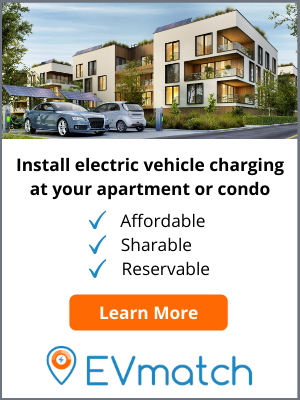Blog
Ending Environmental Racism
June 11, 2020
Post Author

In the wake of George Floyd’s murder at the hands of Minneapolis Police followed by weeks of global protests, communities and industries everywhere are reckoning with the U.S.’s deep-seated racism. As a company in the clean energy space, we see firsthand the effects of inequality and racism. Just as poor nations with small carbon footprints are disproportionately impacted by climate change, structural and environmental racism in the U.S. has made people of color more vulnerable to climate change and pollution even though rich, white communities are responsible for greater pollution emissions.
People of color are more likely to live near highways, refineries, and airports and are exposed to 50 percent higher rates of pollution than the general population. Additionally, people of color are more likely to live in low-income communities that carry a higher risk of premature death from exposure to fine particulate pollution. Most strikingly, African Americans are exposed to 1.54 times more hazardous pollution than White Americans, regardless of income.
You can’t have climate change without sacrifice zones, and you can’t have sacrifice zones without disposable people, and you can’t have disposable people without racism.
- FROM SIERRA, THE SIERRA CLUB MAGAZINE
Here’s the rub: clean energy technology exists, but it’s disproportionately deployed in affluent White communities, even as low-income communities and people of color stand to benefit the most from this technology.
Rebates and incentives are available all over the country for electric vehicles (EVs) and EV charging, but structural racism is an obvious barrier for communities most in need. For example, homeowners are incentivized with free home charging stations so they will drive electric in states like California and Vermont, but these incentives are designed to serve capital-rich individuals who can afford to own a house or an EV in the first place, and these communities are predominately White.
In the face of environmental racism and misaligned incentives, what can be done to ensure racial equity in clean energy and electric transportation? There are a number of hardworking organizations leading the equity charge, so let’s take a look at what they’re doing.
Organizations Working for Equity in Clean Energy
The Greenlining Institute
The Greenlining Institute, a nonprofit based in Oakland has been on the front lines bringing clean energy technology like electric cars and trucks to communities of color in California. Through their decade-long effort, the Greenlining Institute helped pass SB 1275, which directs the California Air Resources Board to create equity programs that increase access to EVs. Many projects came out of SB 1275 including vouchers to replace gas vehicles with EVs, low-income EV financing assistance programs, EV-sharing programs in disadvantaged communities, and more.
Greenlining also has an EV Equity Toolkit designed to provide tools, tips, and resources to help ensure EVs are accessible to underserved communities.
EVHybridNoire
Another organization doing excellent transportation equity work is EVHybridNoire – the nation’s largest network of diverse EV drivers and enthusiasts. EVHybridNoire advocates for workforce development for frontline communities, advocates for transportation and energy equity in public charging infrastructure, and connects diverse e-mobility professionals.
EVmatch recently attended the EV Equity Town Hall hosted by EVHybridNoire, which brought voices from communities of color to the forefront of the transportation conversation. We heard from speakers like Rey Leon, Mayor of Huron, California, who discussed his town’s electric ride-hailing program serving low-income communities made up of mostly farm workers. Community agency was a recurring theme throughout the Town Hall, particularly when addressing barriers and solutions to electrification in disadvantaged communities.
GRID Alternatives
GRID Alternatives is also performing valuable work to ensure a just and equitable clean energy transition. Their mission is to make renewable energy technology and job training accessible to underserved communities through various programs like Energy For All and Workforce Development. They are committed to diversity on the job site as well as in the boardroom, where gender and racial diversity is reflected by staff and leadership.
Our Commitment to Equity and Ending Environmental Racism
EVmatch is committed to being part of the change that needs to happen and endorsing environmental justice. As a women-led cleantech company, EVmatch’s focus on equity and inclusion is paramount to our mission of serving disadvantaged communities. Twenty percent of our charging hosts in California are located in disadvantaged communities, and we have a goal to increase that to thirty percent by the end of 2020. Our residential peer-to-peer charging network is designed to encourage homeowners – and other capital-rich parts of our society – to share their chargers and democratize EV charging. Our multi-family technology platform and EV charging deployments specifically focus on renter communities, which have historically had low levels of investment from private EV charging companies.
We stand in solidarity against racism, but we know we must do more. We see the deep-rooted and insidious connection between racism and climate change. As activist and academic, Angela Davis states, “You have to act as if it were possible to radically transform the world. And you have to do it all the time.” EVmatch seeks to be a driver in building an anti-racist climate movement and transforming our energy system. We commit to leveraging our platform, technology, and voices to build equity both in and outside of our company.
We’re committed to supporting the work of groundbreaking organizations like GRID Alternatives and EVHybridNoire to serve disadvantaged communities on their terms. We’ve partnered with the San Francisco and Santa Lucia chapters of the Sierra Club to serve the parts of their communities in need of charging infrastructure. We are actively seeking new partnerships with nonprofit organizations nationwide to strengthen our community charging network and ensure equitable distribution of emissions-reducing technology.
If you’re an organization working to end environmental racism, reach out to us so we can work together to build a broad coalition to support the clean energy transition in communities of color.








